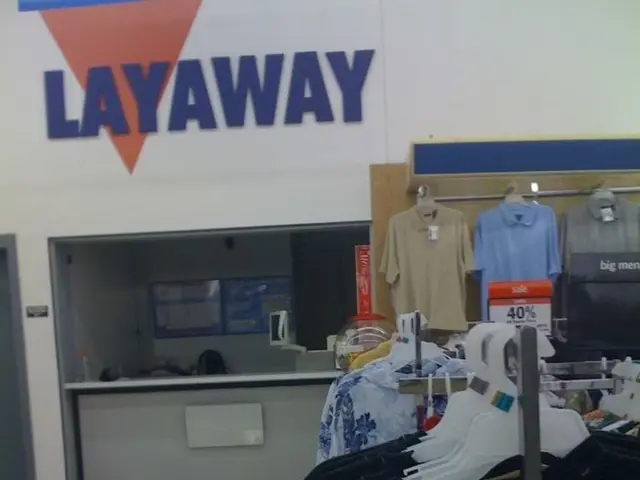Trump Administration Aims to Access Unencrypted Communication in Encrypted Messages
In the ongoing battle against crime, a contentious issue has emerged: law enforcement access to encrypted communications. This debate, centred around the tension between security needs and privacy rights, has gained significant attention, particularly in the tech industry.
The Trump administration, along with Senator Lindsey Graham, has been pushing for tech companies to adopt a code of best practices, potentially including a requirement for police access to encrypted messages. This proposal has sparked controversy, with critics arguing that such a move could compromise the privacy of millions of users.
Moxie Marlinspike, a renowned software developer known for his focus on privacy, co-created software that has made encryption easy and is used in popular products like WhatsApp and Skype. Marlinspike himself runs an open-source encrypted messaging service called Signal, which has gained popularity among security-conscious users such as journalists and government sources.
The Justice Department, concerned about end-to-end encryption, believes that it prevents law enforcement from accessing encrypted communications, even with a warrant. Attorney General William Barr believes that the deployment of warrant-proof encryption imposes huge costs on society by enabling dangerous criminals to cloak their communications.
However, critics, including cybersecurity experts and privacy advocates, warn that creating backdoors or weakening encryption presents significant risks. Once encryption is compromised for law enforcement, it becomes difficult to restrict access to only lawful entities, potentially creating vulnerabilities that could be exploited by criminals or authoritarian regimes.
Captain Clay Anderson, who supervises investigations for the sheriff's office in Humphreys County, TN, has firsthand experience with the challenges posed by end-to-end encryption. He noted that end-to-end encryption is a common issue in at least one or two investigations per week, often involving sexual exploitation cases where predators groom minors via online messaging.
In response to these concerns, opponents of weakening encryption suggest alternative solutions for law enforcement, such as advanced investigative techniques, data analysis, international cooperation, and technologies like client-side scanning or privacy-preserving investigations, which aim to detect illegal content without breaking end-to-end encryption.
The debate is not limited to the US. Internationally, the EU has faced criticism for pushing tech companies to weaken encryption, while other countries, like the UK, have advocated for strong encryption following events where law enforcement access mechanisms were exploited by hackers. This has led to a split among security experts and governments over the best approach to balance lawful access and privacy.
In conclusion, the debate is polarized between those who argue for lawful access to encrypted data to fight crime and those who warn of the dangers to privacy, security, and free expression posed by weakening encryption or mandating backdoors. As the digital age continues to evolve, finding a balance between these competing interests will undoubtedly remain a challenging yet crucial task.
[1] https://www.europol.europa.eu/activities-services/publications/european-union-agency-for-law-enforcement-cooperation-eu-agency-for-criminal-justice-cooperation-ioc-threat-assessment-2021 [2] https://ec.europa.eu/info/law/better-regulation/have-your-say/initiatives/12527-Digital-Evidence-and-Digital-Evidence-in-Criminal-Proceedings [3] https://www.eff.org/deeplinks/2019/08/european-parliament-votes-encryption-backdoors [4] https://www.bbc.com/news/technology-56081832
- The Trump administration, along with Senator Lindsey Graham, has been advocating for tech companies to adopt a code of best practices, potentially including a requirement for police access to encrypted messages, a proposal that has sparked controversy.
- Moxie Marlinspike, a software developer known for his focus on privacy, co-created software used in popular products like WhatsApp and Skype, and runs an open-source encrypted messaging service called Signal.
- The Justice Department believes that end-to-end encryption prevents law enforcement from accessing encrypted communications, even with a warrant, while critics, including cybersecurity experts and privacy advocates, warn that creating backdoors or weakening encryption presents significant risks.
- Captain Clay Anderson, who supervises investigations for the sheriff's office in Humphreys County, TN, has experienced the challenges posed by end-to-end encryption, particularly in sexual exploitation cases.
- The debate over lawful access to encrypted data and the risks to privacy, security, and free expression posed by weakening encryption is not limited to the US, with international entities like the EU facing criticism for pushing tech companies to weaken encryption.








